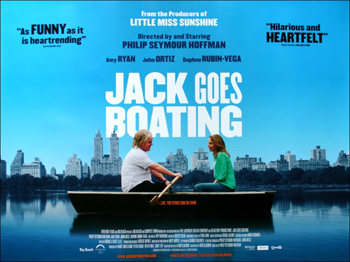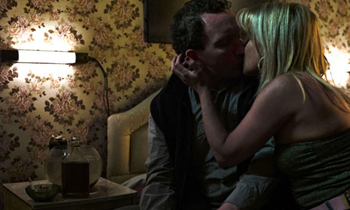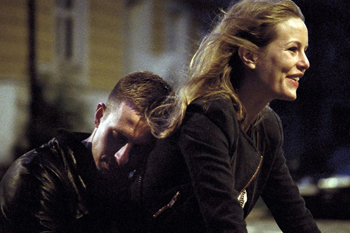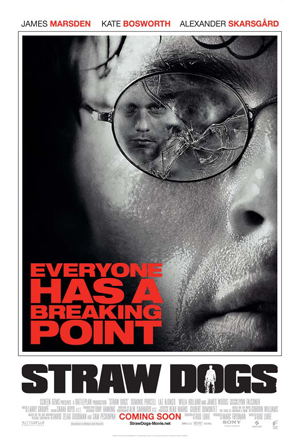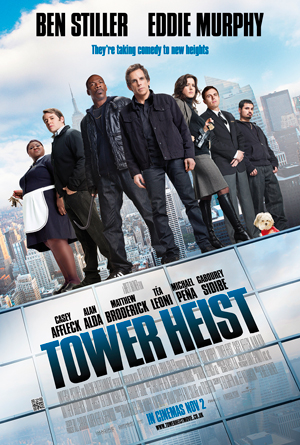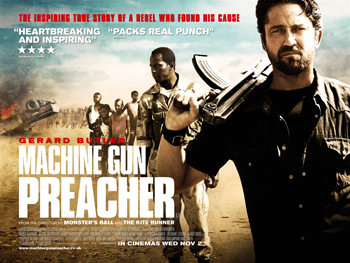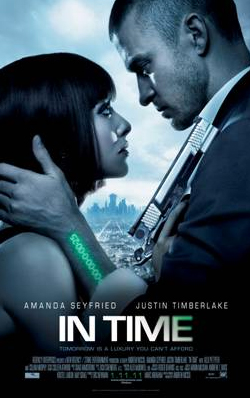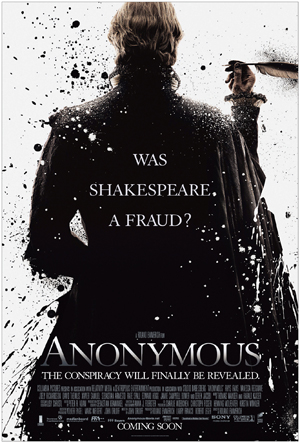LFF 2011: Wuthering Heights***
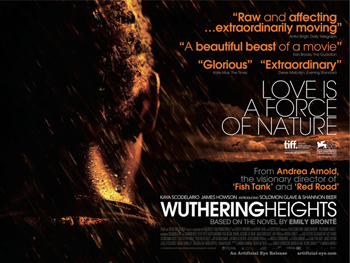 Those expecting the delicate etiquette and burning passionate of Emily Brontë’s infamous 1847 doomed love affair, Wuthering Heights, set on the Yorkshire Moors, may find award-winning Fish Tank director Andrea Arnold’s film version a little rougher round the edges, but equally dramatic. Rather than the fluffy period drama brought to many screens over the years, Arnold who is known to be a very instinctive film-maker, aims for the dark heart of the novel’s depiction of mental and physical cruelty.
Those expecting the delicate etiquette and burning passionate of Emily Brontë’s infamous 1847 doomed love affair, Wuthering Heights, set on the Yorkshire Moors, may find award-winning Fish Tank director Andrea Arnold’s film version a little rougher round the edges, but equally dramatic. Rather than the fluffy period drama brought to many screens over the years, Arnold who is known to be a very instinctive film-maker, aims for the dark heart of the novel’s depiction of mental and physical cruelty.
A poor, young black boy called Heathcliff (Solomon Glave) is discovered on the streets of Liverpool by Mr Earnshaw (Paul Hilton), a farmer, and taken back to Yorkshire to live on the family farm on the Moors, Wuthering Heights. Heathcliff grows up with the farmer’s spirited daughter, Cathy (Shannon Beer), who he soon develops an intense relationship with – much to the dislike of Cathy’s jealous older brother who sees Earnshaw Sr. favouring his black foster brother. Years later, long after the farmer’s death, and Cathy’s (Kaya Scodelario) subsequent marriage to wealthy aristocrat Edgar Linton (James Northcote), a spurned Heathcliff (James Howson) returns to Wuthering Heights a rich and successful man. But can he ever capture the heart of his one true love again…
Arnold gives a wildly refreshing revival of an old classic with a raw and poignant twist that makes a little more sense to a contemporary audience. She changes her Heathcliff from a gypsy boy to a black boy, and perhaps, swaps one form of prejudice for another. But rather than her actors – many of whom give commendable debut performances in this, expect professionals Scodelario and Northcote, it is the film’s style itself that will be remember and that fuels the emotion, with limited words spoken for full effect.
Lacking in script, as if to focus our attention completely on what is being shown in the 4:3 window, there is an organic and interactive feel to the cinematography by Venice Film Festival-winner, DoP Robbie Ryan, where the images speak far louder than any words ever could: You actually feel as if you are subjected to nature’s whim, submerged in the cruel environment, along with the actors like an ambiguous third-party eye, feeling the wind and cold whipping around you and the rain pummelling your being. Even getting out of the cold and into the gloomy interiors of Wuthering Heights feels like being projected back in time to that era, and what it might have been like with only firelight to see the long nights out. Arnold’s vision is a stark, breathtaking and purely physical one, full of lurking danger and untold cruelty that has to be experienced to be believed.
This interactive adventure is almost timeless in feel, but it does mask some of the film’s wooden acting – there are no characters in this film that quite capture the struggle or determination of, say, Fish Tank’s feisty lead Mia (played by then newcomer Katie Jarvis). Each participant in this period drama feels as though they are on a fatalistic, narcissistic journey, making them difficult to relate to, and with not enough satisfactory chemistry between the older Heathcliff and Cathy to really warrant so much self-angst and suffering, we are left watching a bunch of characters seemingly getting their emotions off their chests. The only character who truly wins any empathy through the cruel actions of others is Isabella (Nichola Burley), Linton’s lovelorn sister, who falls hard for and marries Heathcliff, but receives no real love in return.
Although not art-house as such, it is as though Arnold’s primary concern – which feels as cold and calculating as her extraordinary offering – is with the film-making process here, and not with her talent who are as much part of the frame as the wildlife we see. Nature is her only true star in this.
3/5 stars
By @FilmGazer

